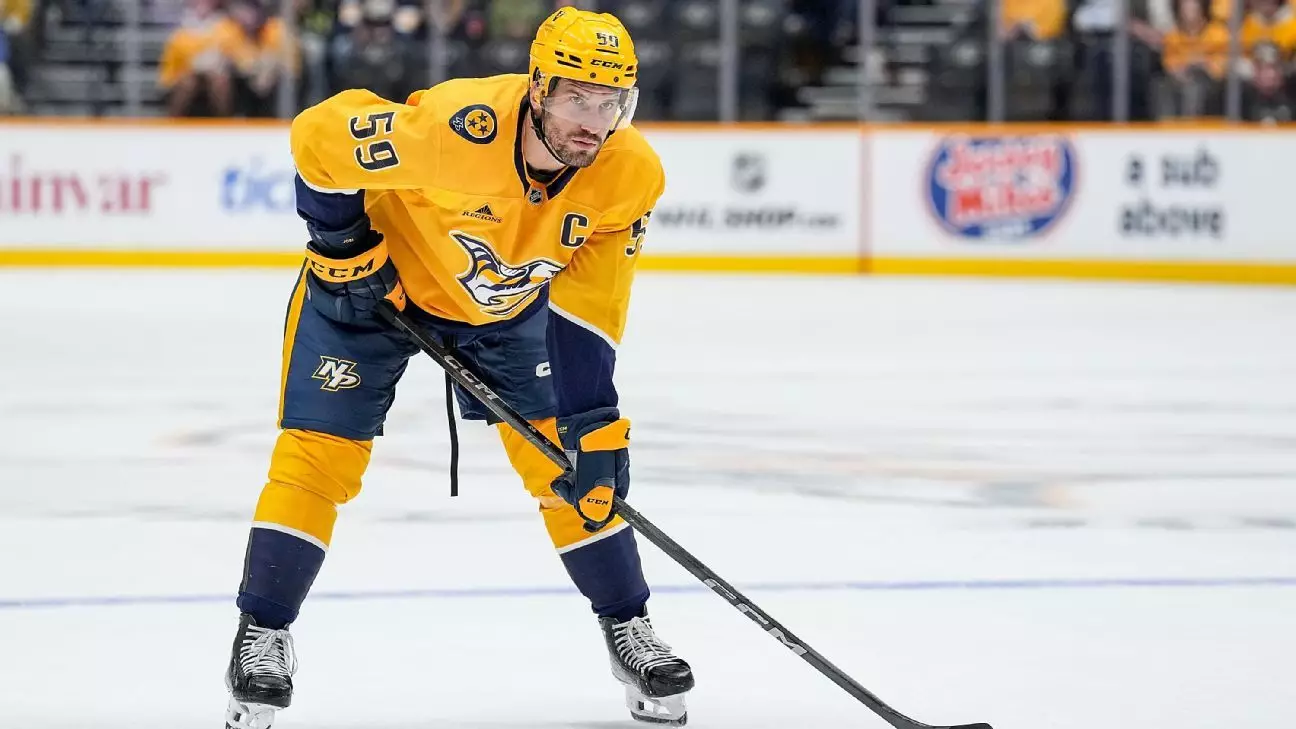For elite athletes like Roman Josi, the journey to success is often paved with remarkable achievements and accolades. However, the conditions that can challenge even the strongest competitors often go unnoticed. Josi’s recent diagnosis of postural tachycardia syndrome (POTS) sheds light on this reality. Though POTS is not widely recognized compared to concussions or other injuries, its implications can significantly affect an athlete’s performance and health. This condition manifests through symptoms such as rapid heart rate, fatigue, and dizziness—all debilitating for someone needing peak physical condition to compete at an elite level.
Many athletes view their bodies as invincible, yet conditions like POTS reveal the fragility of human health. The fact that Josi has been undergoing treatment and is already showing signs of improvement is commendable. It highlights not only the advancements in sports medicine but also the player’s determination to reclaim his potential. Navigating an illness that lacks a standard cure would challenge even the strongest resolve, yet Josi’s spirit resonates as he aims for a return in the 2025-26 season.
The Pressures of Elite Competition
Josi, the first Swiss captain in Predators history and a Norris Trophy winner, exemplifies the pressures faced by top-tier athletes. His limited participation due to a concussion earlier in the season serves as a stark reminder that physical setbacks can sometimes be just as formidable as the competition on the ice. Notably, his last encounter against Florida involved a heavy hit that cut short his season, underlining the harsher reality of contact sports.
The hockey world eagerly anticipates Josi’s return, but it also begs the question: How can organizations better prepare their players for mental and physical health challenges? The rigorous expectations placed on players must balance with understanding their well-being, which often takes precedence over on-ice performance.
Excitement in Nashville: Team Dynamics and Strategic Moves
The Nashville Predators’ recent acquisition of Erik Haula from New Jersey also underscores an evolving team dynamic. Haula’s return, following a diverse career path across multiple franchises, brings experience and depth to the roster. He is now not just an addition but a strategic move that displays Nashville’s growth mindset, focusing on building a competitive edge while managing player longevity.
The decision to trade for Haula reflects a commitment to winning now while considering the long-term trajectory following Josi’s health recovery. With nine selections still available in the 2025 NHL draft, including three first-round picks, the Predators are not just planning for the present but also laying a robust foundation for the future.
The Olympic Dream: A Bright Future Ahead
Recently named to the Swiss Olympic roster for the upcoming 2026 Winter Games, Josi remains a beacon of hope not just for Nashville but for his homeland. His exuberance for the game is matched only by his dedication to recovery. This juxtaposition of health challenges amid remarkable career milestones reminds us that while the spotlight can illuminate achievements, it can also obscure the struggles that accompany them.
Roman Josi’s journey epitomizes resilience in the face of adversity. As he prepares for training camp later this year, fans and teammates alike look forward to celebrating his return—not just as a player but as an icon of perseverance. The admiration for athletes is not only about their victories but equally about their human story of struggle, recovery, and relentless pursuit of excellence.

